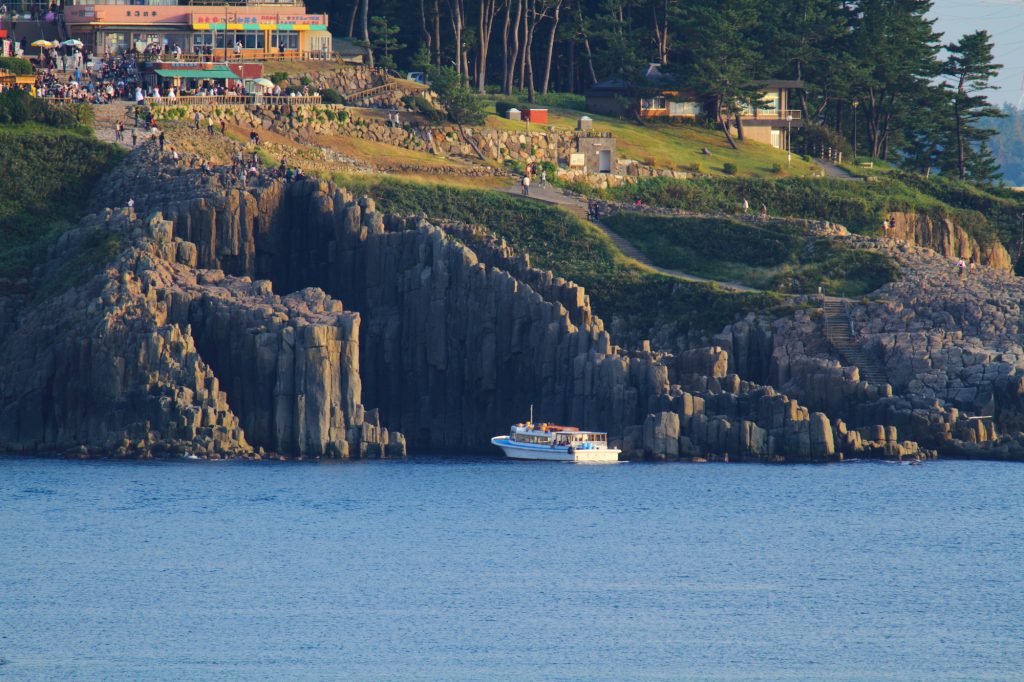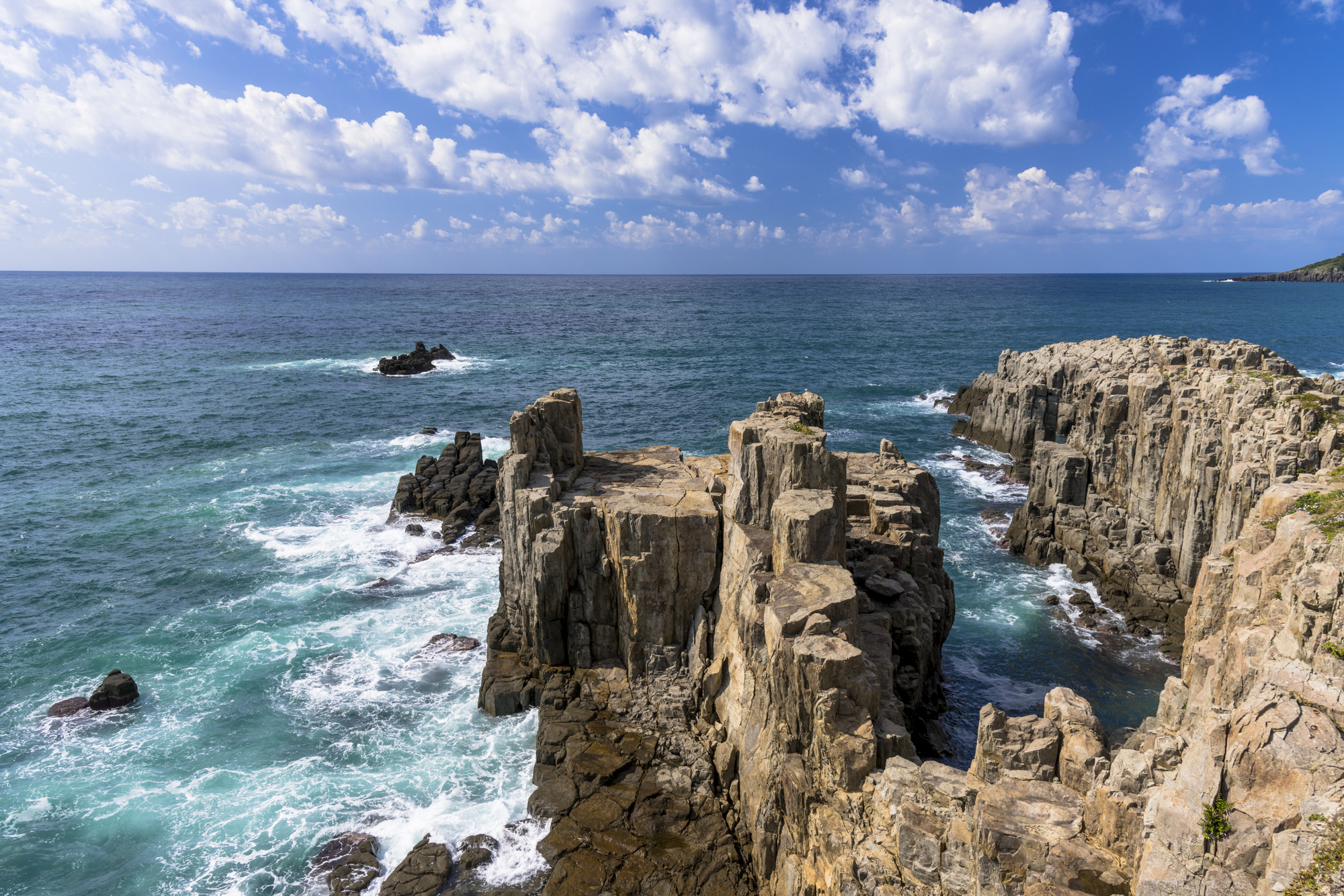The calm Pacific Ocean extends in the east of Japan, an island country. However, the Sea of Japan, which lays in the west, is known for a fierce rough sea. Tojinbo, located in Mikuni Town in the northern part of Fukui Prefecture, embodies such perception of the Sea of Japan.
Steep rock walls, slamming and rising rough waves.. the Sea of Japan has such a rough image, though we have calm and sunny days, by the way… But still, we can be convinced that it is really like that, when you stand at the cliff of Tojinbo.
【What is Tojinbo?】
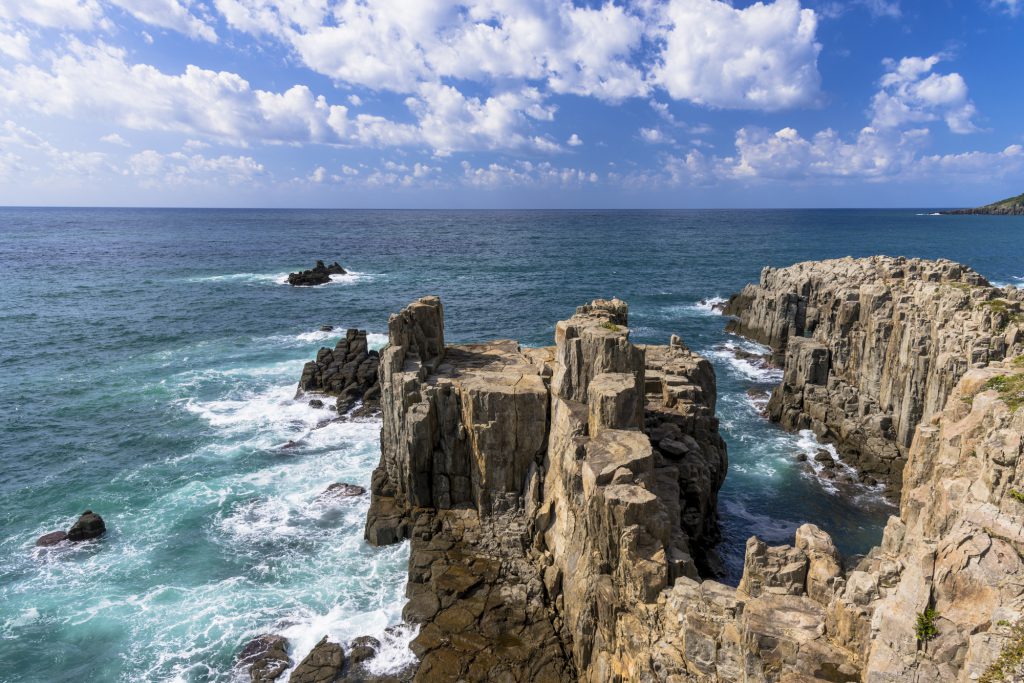
Tojinbo is a scenic spot with the series of huge columnar rocks that stretch for about a kilometer along the coastline. About 13 million years ago, magma, that had risen to just below the surface of the earth, was solidified into columns, forming pentagonal and hexagonal columnar joints. At Tojinbo, that columnar joints are exposed on the surface of the earth. The columnar joints at Tojinbo are extremely large, with a height of 25 meters, and there are only three places in the world where we can see them in such a scale : Mt. Kumgang on the Korean Peninsula, and on the west coast of Norway are the rest of them.
According to folklore, the name of Tojinbo came from the name of a monk named “Tojinbo” at Heisenji Temple in the eastern part of Fukui Prefecture. He was said to be so violent that he made many troubles for the farmers nearby. Meanwhile he loved a girl, Princess Aya, and there was a rival called Magara-Kakunen. In April 1182, Tojinbo drinked with his fellows at Tojinbo. Magara-Kakunen appeared there, with drinks&foods. After Tojinbo had got drunk, Magara-Kakunen pushed Tojinbo from the top of the cliff into the sea. For the next 49 days, the sea was devastated by the remorse of the Tojinbo. In the consequence, this place became later to be called Tojinbo. Even today, Tojinbo has no fences in order to keep the original and natural scenery. Thus we must be careful enough, when we walk on the cliffs.
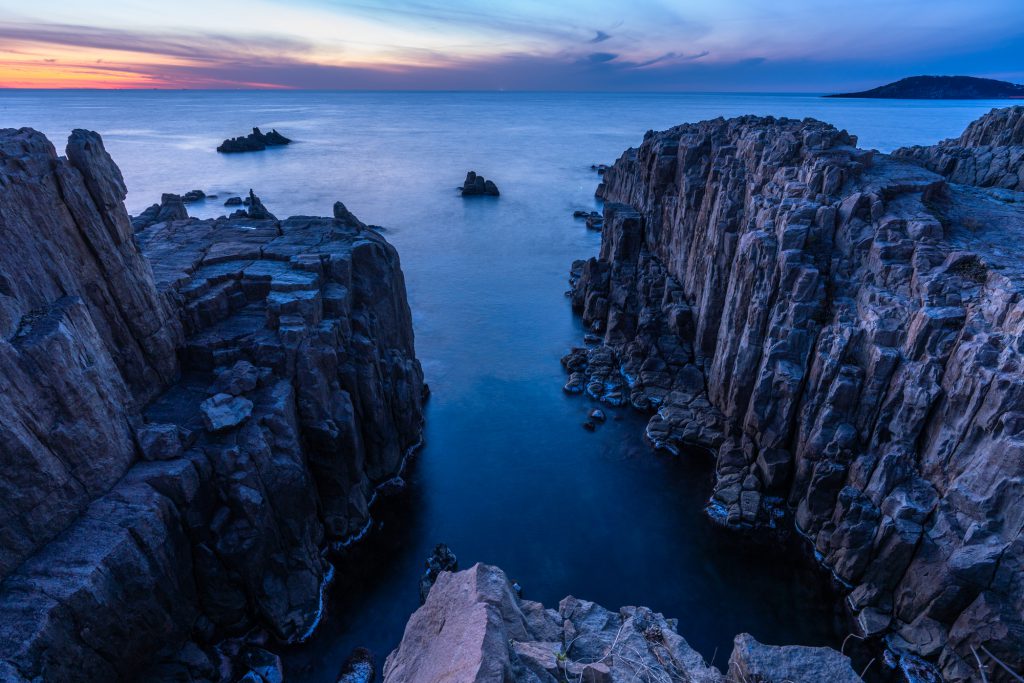
【Tojinbo : visit from the ground or sea?】
Tojinbo has a magnificent cliff created by nature. You have many options to enjoy the scenery, and the scenery you can see will change depending on where you are, especially either from on land or sea.
The recommendation on land is on a cliff called “Iwaba”. We can walk through to the tip, but as we come closer to the tip, we can feel how the cliff is high and that makes our legs trembled. You may try to look underneath, but don’t do it too much, as there is not fence. For those who want to get down to the beach, there is Senjojiki nearby. This is the site of an old quarry, and there is a flat rocky area that is quite unusual in Tojinbo. The scenery you can see from there is excellent, and it is usually used in posters and TV.
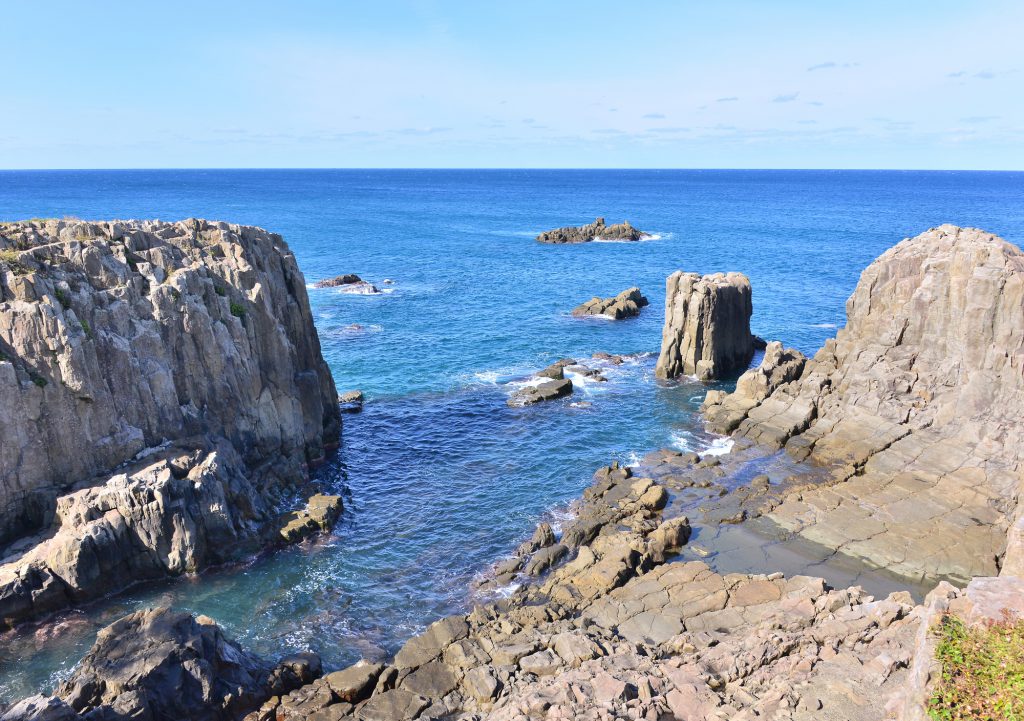
For those who want to see the scenery from the sea, there is a pleasure boat. The ship slowly goes around the sea to Oshima, which is about 2 kilometers away from Tojinbo, taking about 30 minutes. At Oshima, columnar joints similar to those of Tojinbo can be observed, and in particular, the “honeycomb rock”, which is a collection of rocks in the shape of a honeycomb, is absolutely a “must-see”. And the highlight of this cruise is the exploration at “Oike”, a cove made by the largest columnar joints in Tojinbo. When you enter the cove, you can see cliffs that are 25 meters high, and if you look up, you can see people waving from far above. Such a experience is available only at Tojinbo in Japan. When you visit this place, be sure to enjoy the scenery from both land and sea.
